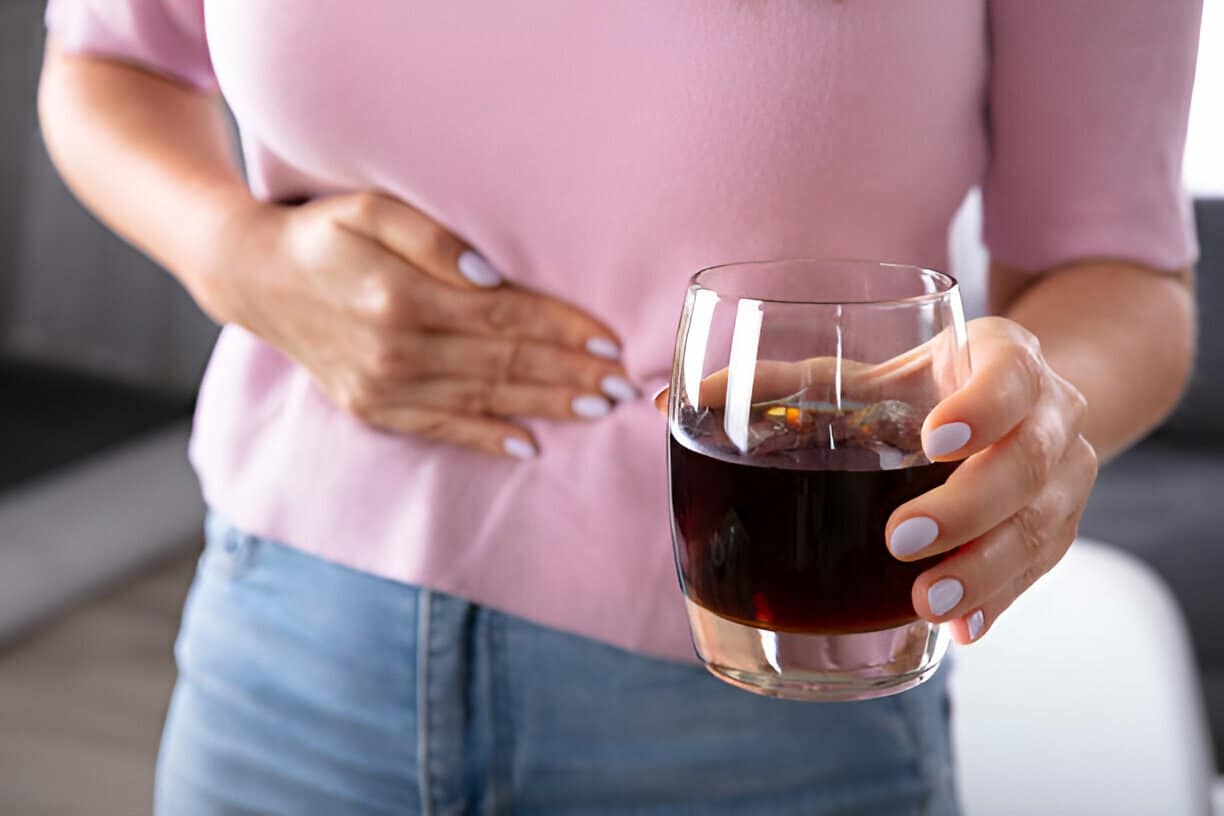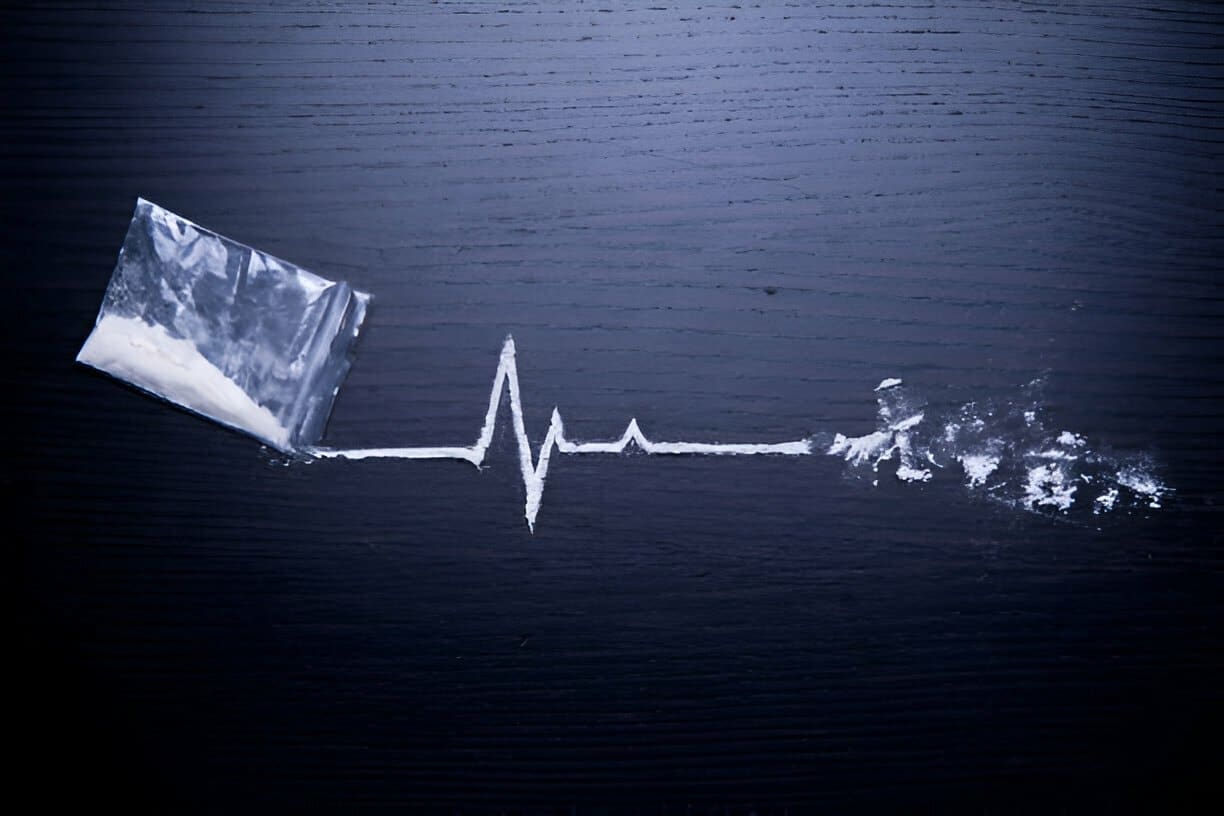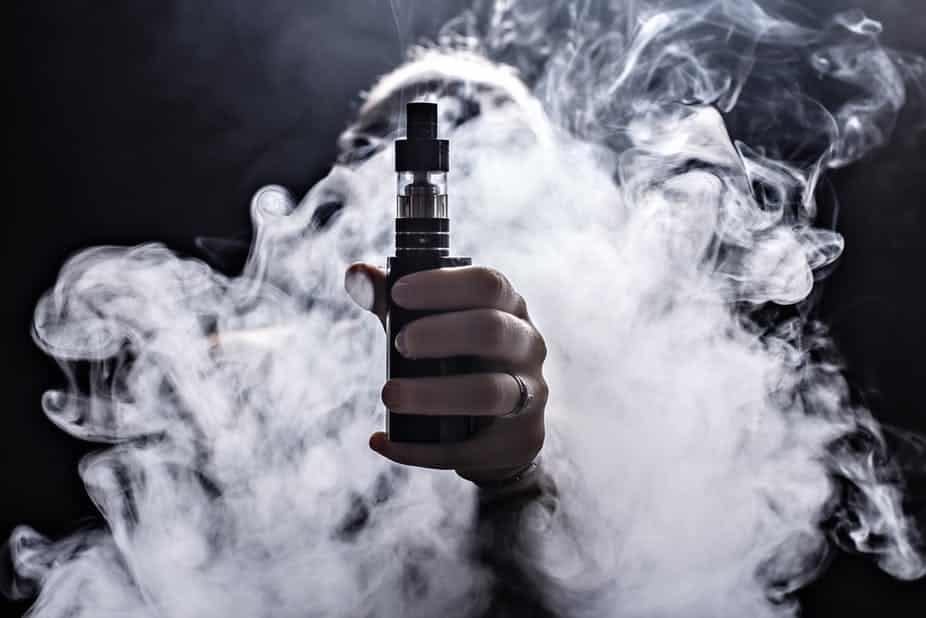Addiction is a disease that affects many people all across the country. However, because they do not know where to seek care, most of these people never receive the assistance they require to conquer their condition. Because the individual has no idea who to talk to about the available solutions, they will continue to engage in damaging behaviour.
We at Compare Rehab UK recognise that addiction is a life-threatening disorder that requires treatment. As a result, we have a team of professionals working 24 hours a day, 7 days a week, to guarantee that as many individuals as possible receive the assistance they require.
Our counsellors and therapists are available to receive calls from those battling addiction, as well as family members and friends who are concerned about a loved one’s addictive behaviour. You may get up-to-date information and guidance on the treatments available for the dependency you’re dealing with by calling Compare Rehab UK.
We provide free, comprehensive examinations as part of our service so that addicted people and their families can better understand what they’re up against. With the findings of this evaluation in hand, our staff can recommend the best therapy provider for your specific requirements and circumstances. We will make every effort to give more than one treatment choice and provide advice so that an affected person can make an educated decision about their care.
Our professionals are empathetic and caring, and anything you tell them will be kept in complete confidence. Contact Compare Rehab UK today for a listening ear or help on how to move forward.
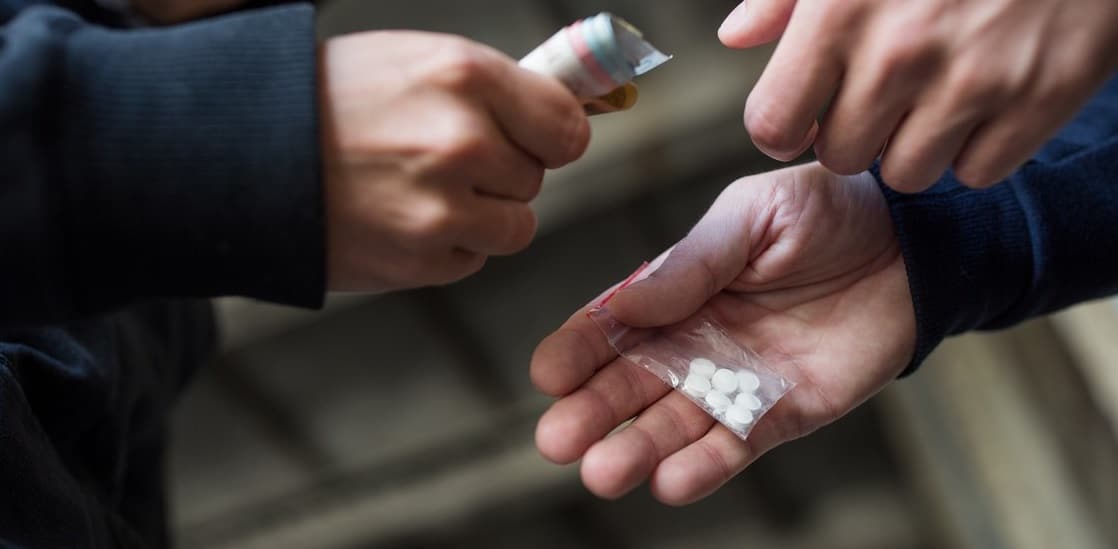
Addiction is a debilitating condition that affects many people’s lives, as you are probably aware. It is a disease that alters the way the brain functions, causing those who are affected to behave in unusual ways.
Family members frequently characterised their addicted loved ones as entirely transformed. They claim that these people have become unrecognisable due to their sickness and that they are having difficulty coping as a result.
If left untreated, addiction is a degenerative disorder that will only worsen. The longer a person battles with addiction without seeking treatment, the more difficult it will be for them to recover. However, addiction is a disease that may be treated.
It takes hard work and dedication, but those suffering from addiction can recover and rebuild their lives with their loved ones. Assuming, of course, that they receive the appropriate assistance and counsel.
Admitting that addiction is a problem is the first step towards treatment for all addicts. This can be tough to do because many people who are addicted spend a lot of time in denial. It is easier for them to pretend that they do not have a problem than to admit it and seek assistance. Some people prefer to blame others or their circumstances, telling anybody who will listen that they drink or use drugs due to situations beyond their control.

Recognising that addiction exists is the first step toward treatment. This is typically challenging for family members. They can see that their loved one requires assistance, but they cannot persuade them to accept it. It can be tough to address this issue if you have no prior experience with addiction.
Compare Rehab UK is available to provide support to family members suffering from a loved one’s illness. We understand how painful it is to see a loved one struggle with an apparent problem that they refuse to admit.
As you surely know, it’s impossible to compel someone to seek assistance if they aren’t ready. Still, interventions are extremely effective in encouraging those suffering from addiction to recognise the problem and realise that they need to change. In many circumstances, we would recommend that family members try an intervention.
If you are a worried family member, we recommend informing the affected family member that you consider an intervention. Explain that you’re looking into this option because you love and care for them. By letting this person know that you are serious about their situation, you may be able to start sowing the seeds that, when the intervention occurs, will make them more open to the thought of recovery.
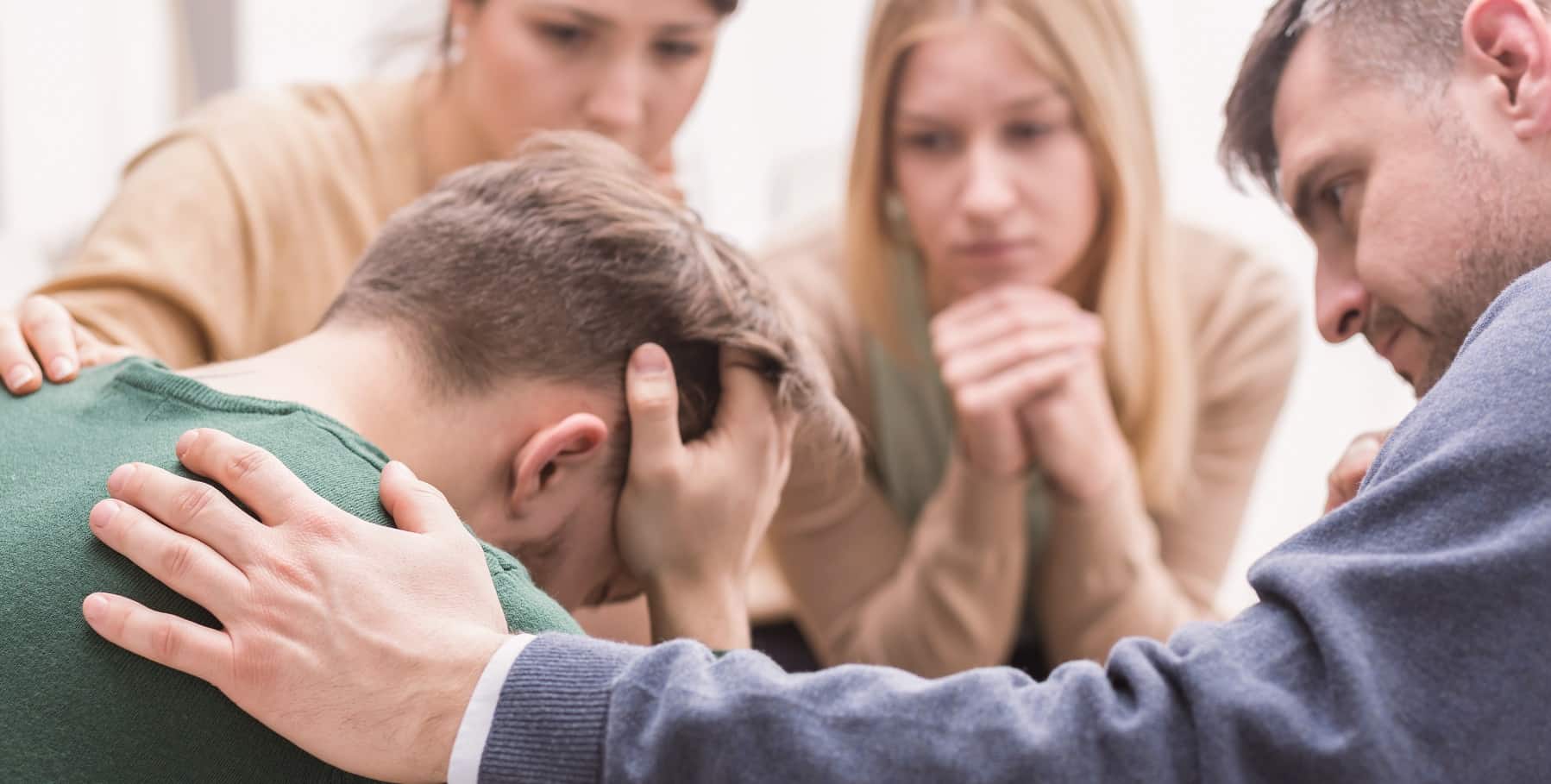
An intervention is a meeting of people concerned about the addict’s well-being to discuss how the addiction affects their lives. The goal is to make the addict see the suffering and challenges that their loved ones are through as a result of their behaviour. An intervention should not be used to punish the person who is addicted.
If you want to hold an intervention to help a loved one, we can guide you through the process. Alternatively, we can connect you with a professional counsellor who has experience with intervention assistance. In some cases, we believe it is preferable to entrust the procedure to a thoroughly qualified and experienced counsellor, particularly if your addicted loved one has a history of violent or aggressive behaviour. However, if you believe your family is strong and your loved one has never exhibited signs of hostility or violence, you can handle the intervention on your own.
Don’t go through the process of recovery alone. Treatment providers can answer your questions. Get in touch with one today.
Call 0800 999 1083 today!
For many people, admitting that they have a problem with drugs or alcohol is the first step towards recovery. The next step is to discover a therapy programme that can assist them in regaining their full health, happiness, and well-being.

A person can choose from a variety of treatment alternatives. Most individuals with severe addictions, for example, go through a detox programme before entering rehab. Others may prefer to start their recovery in an inpatient or outpatient setting. Attending support groups and therapy sessions after treatment is encouraged to reinforce the principles learnt in rehab. Keep in mind that there is no such thing as a “one-size-fits-all” solution to addiction treatment. Whatever treatment option you choose, make sure it includes all you’ll need to make a full recovery.
It’s not simple to recover from an addiction. To achieve and sustain long-term sobriety, a significant degree of willpower and self-discipline will be required. However, you are never alone on this trip. You’ll form close bonds with other people in recovery who understand what you’re going through during therapy. During this time, your family, friends, and other loved ones are also looking out for your best interests.
Your ability to recover from an addiction is determined by how much effort you put into it. Find out how addiction is treated in the sections below to better understand what to expect.
Individual treatment plans are unique to each person and can be tailored to meet their specific needs and circumstances. Individuals in recovery are actively involved every step of the way in the most effective forms of treatment programmes. Types Of Treatment programs include:
Detoxification aids with the safe withdrawal of drugs or alcohol from the body until the substances are no longer present. It is frequently the first step in treating those who are recovering from moderate to severe addictions. During detox, medications are commonly tapered down until the patient is no longer physiologically dependent on addictive substances. Detoxing from certain narcotics may need medication-assisted therapy to reduce the intensity of withdrawal symptoms.
Individuals facing persistent addiction and those suffering from a co-occurring mental or behavioural condition should consider inpatient rehab. Inpatient rehabs provide structured treatment plans that address all aspects of a person’s addiction. Patients in inpatient rehab live in a drug-free environment and get round-the-clock medical and therapeutic care.
Another type of comprehensive addiction treatment is outpatient rehab. Many of the same effective treatments and therapies are available in these programmes as they are in inpatient rehabs. Outpatient rehabs, however, allow patients to stay at home while recovering. While attending regular treatment sessions throughout the week, patients can continue working and caring for their families.
It’s vital to remember that outpatient rehabs don’t isolate patients from the outside world; as a result, patients are more likely to face triggers that threaten their sobriety. Consequently, outpatient rehabs are best for people who have modest addictions and want to take a serious, disciplined approach to recovery. Outpatient programmes, frequently integrated with sober living homes, are also an appropriate “step-down” programme after inpatient treatment.

Sober Living Homes (SLH) serves as a transitional housing facility between inpatient treatment and reintegration into society. These are fantastic choices for recovery individuals who require more time to reinforce what they learned in rehab. SLH assists people in recovery, maintaining their new healthy behaviours while remaining in a structured setting.
Patients may be administered drugs to aid in the recovery process throughout detox and therapy. These drugs are used to manage withdrawal symptoms, reduce cravings, and treat co-occurring disorders, among other aspects. When used in conjunction with a thorough treatment programme, medications for addiction treatment have the best results.
Some people want to approach their recovery more spiritually. Religion-based rehab centres offer specific programmes and facilities that are founded on faith. People in recovery can surround themselves with like-minded people who are looking for guidance from a higher power to stay strong in the journey ahead throughout this type of treatment programme.
Don’t go through the process of recovery alone. Treatment providers can answer your questions. Get in touch with one today.
Call 0800 999 1083 today!
Addiction treatment therapies are adapted to an individual’s health and drug consumption behaviours. Individual or group therapy sessions, usually coordinated by addiction counsellors, are available as therapy options.
Biofeedback is a type of drug-free therapy that aids in the understanding of the body’s involuntary functions. A therapist implants electronic sensors on a patient’s skin during a biofeedback session to measure their brain activity. The therapist might offer a variety of psychological strategies to help overcome addictions after studying brain wave patterns.
CBT is a type of treatment that helps people in recovery reveal problematic thoughts or feelings that could jeopardise their sobriety or lead to a relapse. This type of therapy can also be used to treat co-occurring disorders like bipolar disorder.
Dialectical behavioural treatment (DBT) is used to treat severe mental health disorders such as obsessive-compulsive disorder in conjunction with a substance use problem. This therapy seeks to boost self-esteem, teach stress management, and help people in recovery to eliminate triggers from their daily lives.
Experiential therapy is a type of treatment that uses non-traditional approaches to help recovering addicts confront repressed experiences and emotions that may have contributed to their addiction. Outdoor recreational activities, such as rock climbing, are typical examples of this form of rehabilitation.
Holistic therapy focuses on the individual’s total well-being, while physical withdrawal symptoms are also addressed. Yoga, acupuncture, art therapy, and guided meditation are examples of holistic therapies.
Motivational enhancement therapy (MET) is a treatment that teaches people in recovery how to overcome negative beliefs and behaviours associated with their addiction. This sort of therapy is commonly used to treat patients recovering from substance abuse who also have co-occurring disorders like bipolar disorder and post-traumatic stress disorder (PTSD).
Psychodynamic treatment allows people to explore their emotions to determine how their subconscious ideas are linked to their addiction—this aids in determining the root cause of substance abuse. Individuals are considerably better prepared to identify and avoid temptations during their ongoing recovery if they engage closely with therapists to acknowledge these deep-seated feelings.
It is strongly advised that a patient join a support group after completing an addiction treatment programme. Support groups are an essential component of keeping on the road to recovery once you’ve completed treatment, providing long-term follow-up care. Individuals you meet in support groups can encourage you as you work through your rehabilitation.
There are various support groups available, some of which are geared to specific substances or communities. Finding the proper group creates a supportive network of people who encourage and drive one another to stay sober.
12-step programmes are often recognised as the gold standard for addiction recovery. These programmes adhere to the 12-step recovery methodology and the 12 principles established by the founders of Alcoholics Anonymous. Many people have found the programmes to be quite beneficial during their recovery since they allow them to tailor the stages to their specific requirements. Alcoholics Anonymous and Narcotics Anonymous are the two most prominent 12-step programmes.

Alcoholics Anonymous (AA) meetings allow a group of people to connect on some level regarding their alcoholism and how it has affected their lives. The majority of AA meetings take place daily or weekly in a local setting, such as a church or community centre. Closed meetings are only for individuals in recovery, while open meetings encourage family members or loved ones to attend.
Narcotics Anonymous (NA) is a support organisation structured after Alcoholics Anonymous that offers a safe haven for those recovering from drug addiction. Members of NA encourage one another to stay committed to sobriety and avoid relapsing into abusive practices. Individuals generally share their addiction and recovery stories at meetings.
SMART is a popular 12-step support group option. It teaches people in recovery how to control addictive behaviours by addressing the underlying thoughts and feelings of drug and alcohol dependence. The “4-Point Program” of SMART recovery has stages that can be completed in any sequence.
Al-Anon and Nar-Anon are support groups for friends and family members of people with alcohol or drug addictions. These organisations aim to show loved ones that they are not alone in their battle. Al-Anon and Nar-Anon treat addiction as a family illness and teach family members how to cope and communicate effectively.
The role of an addiction counsellor is to provide unbiased assistance to people who are undergoing treatment. Counsellors develop a unique treatment and aftercare plan for each client and provide one-on-one or group therapy sessions.
As you’ve already read, there are a variety of medications and therapies available to assist you in your recovery. Not only that but there is plenty of psychological support; that is, many individuals like you (many of whom are ready to share their stories in support groups) can offer a sympathetic ear or a kind word to someone in need. All that’s left for you to do now is decide to get better. Contact a treatment provider today for more information on treatment options.

BACP accredited psychotherapist with 16 years experience working in mental health specialising in psychodynamic person-centred therapies treating those with a range of mental health disorders including anxiety, depression, OCD and Addiction.

Fill in your details and we’ll send you a message via SMS.

No matter where you live, there are drug and alcohol rehab options for you to discover. Treatment providers are waiting to answer your questions. Get started today.

Ever felt that gnawing ache or burning sensation in your gut after a night of drinks? You’re not alone. Stomach pain after drinking is a common complaint, and there are a few reasons why it might happen. Let’s delve into the science behind the discomfort and explore ways to soothe your stomach. The Irritating Truth: … Continued

Cocaine, a stimulant known for its short-lived burst of energy and euphoria, hides a dark side. Behind the initial high lies a dangerous potential for overdose, with severe health consequences and even death. This article delves into the world of cocaine overdose, equipping you with the knowledge to recognize the signs, understand the dangers, and … Continued

Adult smoking habits in the UK refer to how often and in what ways people aged 18 and above use tobacco. This includes everything from smoking cigarettes every day to occasionally lighting up, as well as using other tobacco products. Understanding these habits is important for several reasons: Public Health: Smoking causes many diseases that … Continued

Addiction in the UK is a complex issue that is connected to various aspects of society such as healthcare and law enforcement. It affects people from all backgrounds and has negative impacts on families, communities, and the entire nation. Understanding addiction involves not only looking at the uncontrollable use of substances and repetitive behaviors but … Continued

Don’t go through the process of recovery alone. Treatment providers can answer your questions. Get in touch with one today.
Call 0800 999 1083 today!





